MercoPress. South Atlantic News Agency
Tag: Financial Times
-
Friday, February 13th 2026 - 12:56 UTC
Financial Times: Venezuelans turn more optimistic after Maduro’s capture
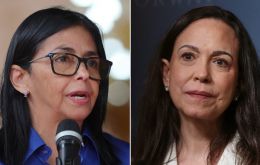
A face-to-face poll reported by the Financial Times points to a sharp swing in public mood in Venezuela following the US military intervention and the capture of former president Nicolás Maduro. The paper said Venezuelans are “much more optimistic about the future”, while the same findings also show heightened concern over security.
Add your comment! -
Thursday, February 29th 2024 - 13:32 UTC
President Milei anticipates decree-based economic reforms, stating Parliament's obstacles
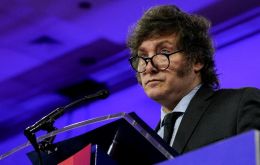
Argentina's President Javier Milei, ahead of his first appearance before the Congress of the Nation for the opening of ordinary sessions, has signaled a proactive approach to economic reform. In an interview with the Financial Times, Milei emphasized his intent to implement reforms “by decree,” citing challenges in garnering parliamentary support due to the current composition.
-
Tuesday, February 14th 2023 - 10:50 UTC
Financial Times full of praise for Uruguay

When looking for a global model, the Financial Times (FT) came up with Uruguay this week while the South American country's so-called “green bond” tied to environmental goals became the “Latin American Bond of the Year in 2022” according to the International Financial Review (IFR).
-
Tuesday, January 3rd 2023 - 17:12 UTC
“A scandal over fake passports”: Financial Times warns that reputation of Uruguay is threatened
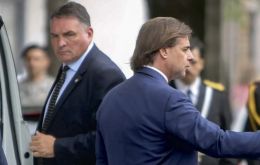
The Financial Times described the event that is currently being investigated by the Uruguayan Justice related to the former presidential custodian Alejandro Astesiano and the implications that have arisen around the entourage of President Luis Lacalle Pou.
-
Tuesday, April 19th 2022 - 20:36 UTC
Financial Times says CFK's speech fueled Falklanders' fears
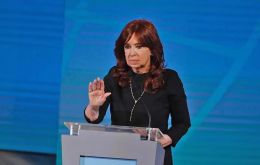
The Financial Times said in an editorial Monday that the recent speech by Argentine Vice President Cristina Fernández de Kirchner (CFK) did nothing fue fuel fears among Falklanders who already feel threatened by the Constitution's provision stressing the South American country's claims over the archipelago and the other British Overseas Territories in the South Atlantic.
-
Thursday, January 28th 2021 - 09:42 UTC
Brazil on the brink of financial default, points out the Financial Times
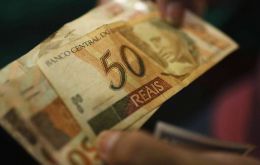
Brazilian president Jair Bolsonaro has been s skeptical of the coronavirus pandemic and the effectiveness of different vaccines to contain it, arguing that the economy, jobs and activity, were the priority above sanitary recommendations. As a result of this approach, his administration's federal spending jumped almost 40% between January and November, according to the Institute of International Finance. And Bolsonaro had even admitted the country is “broke.”
-
Thursday, June 25th 2020 - 09:30 UTC
UK stands for Falklands' squid in post-Brexit trade talks, Financial Times
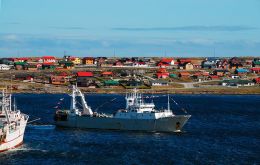
UK has been standing out for the Falklands and its squid and fish sales to the European Union, according to an article from the Financial Times, credited to Jim Brunsden in Brussels, and referred to the post-Brexit EU/UK trade talks.
-
Tuesday, February 18th 2020 - 06:32 UTC
FT: “Argentina needs a plan for investment-led growth”

The Financial Times dedicated on Monday an editorial to Argentina and its current strategy to avoid again defaulting by pressing on the IMF, and later on sovereign bondholders, for a significant haircut in its national debt approaching 90% of GDP. However, FT points out that “debt talks are unlikely to succeed without a strategy for economic revival”
-
Monday, December 30th 2019 - 09:50 UTC
Ex judge Moro chosen as one of the decade's personalities by the Financial Times

Brazilian Justice Minister Sergio Moro was chosen as one of the fifty personalities of the decade by the Financial Times, a list which includes activists, politicians, business people and sports persons from all over the world.
-
Tuesday, August 20th 2019 - 07:40 UTC
Francis involvement in Argentine politics, is “an idea belonging to science fiction”
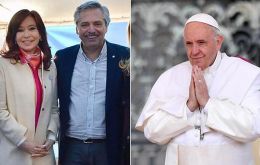
A bishop had denied point-blank any involvement of Pope Francis in Argentine politics, following on August 11 presidential primaries, which have quashed President Mauricio Macri's reelection aspirations, increasing opposition candidate Alberto Fernandez chances of taking office next 10 December, while Latin America's third economy was driven into financial chaos as the word default creeps intensely as a possibility in the near future.
